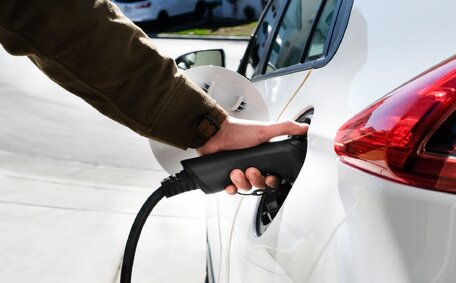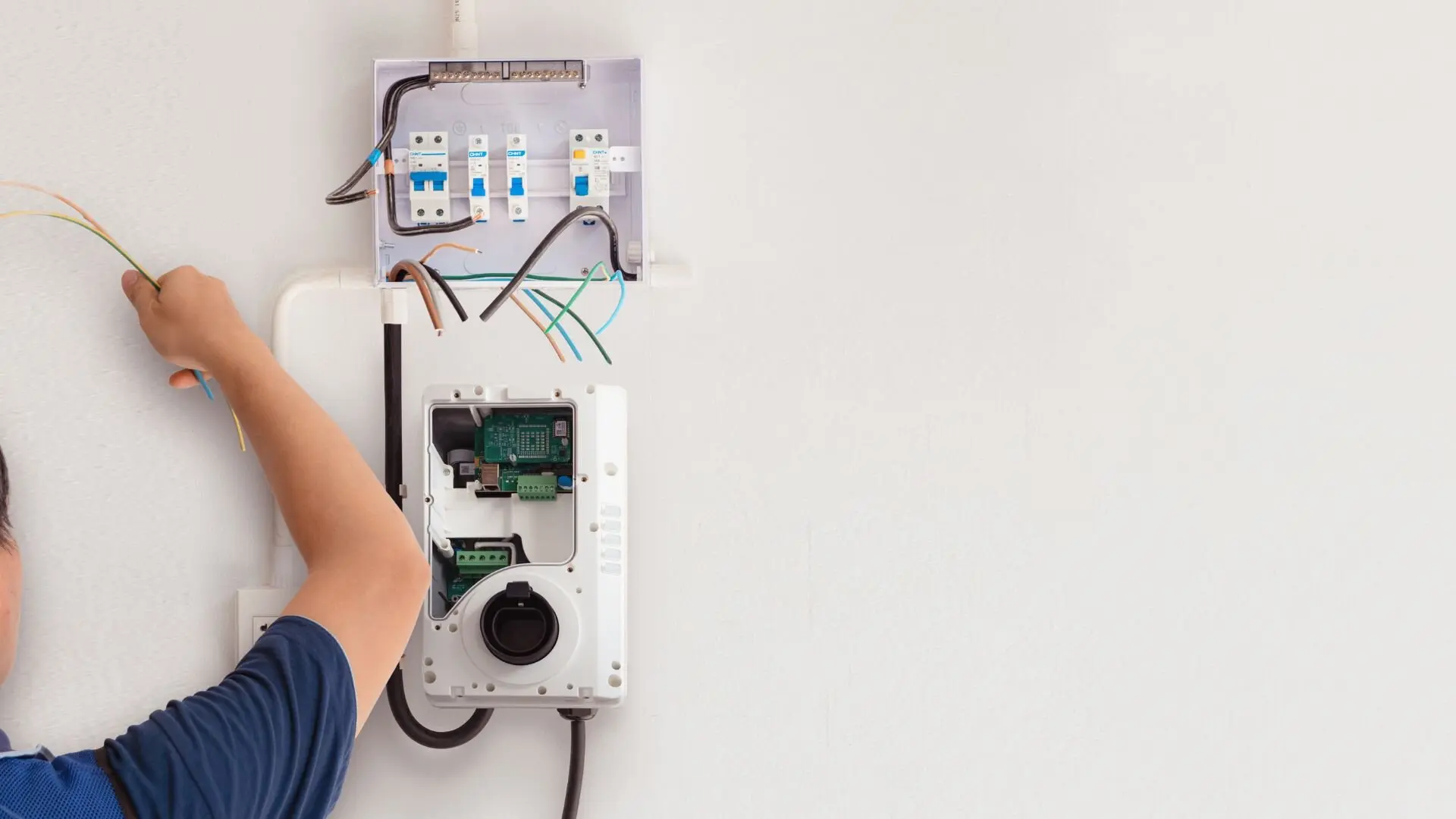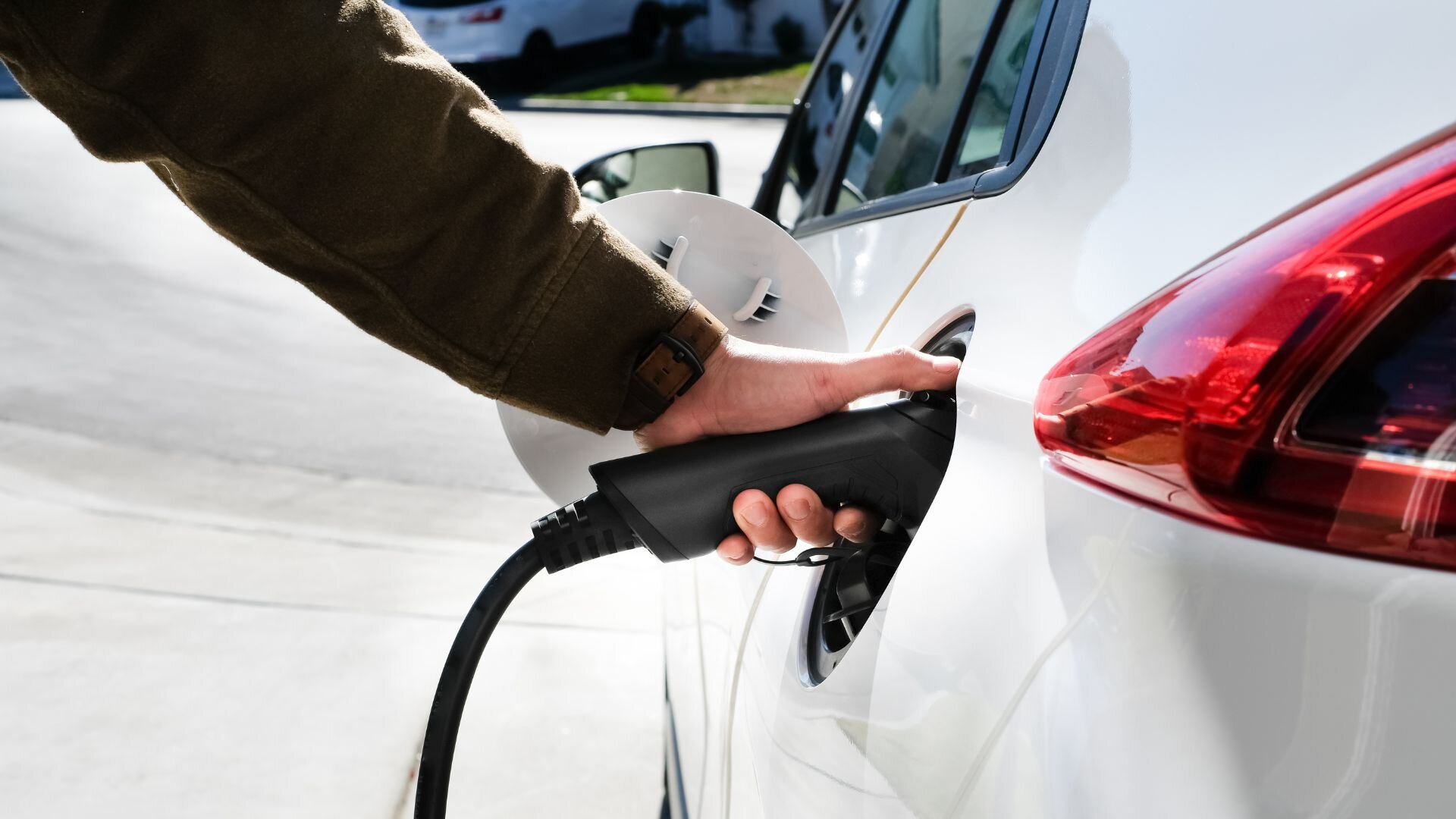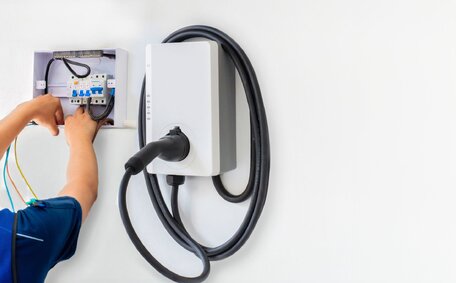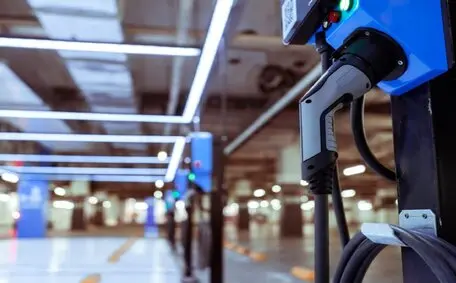Electric vehicles (EVs) are zipping into our day-to-day life pretty quickly. They’re stylish, eco-friendly, and destined to become the norm. Yet, as we jump on this energy-efficient trend, one crucial factor can’t be overlooked: charging safety.
This is where the Residual Current Device (RCD) steps in. It’s a clever little device focused on your safety. If it detects any electrical imbalance, signalling potential danger, it swiftly cuts the power. Imagine it as a watchful guardian for your EV, always ready to act instantly to avert a shock or fire.
With more people switching to electric vehicles, a crucial question arises: Should all EV chargers have RCD protection? Absolutely! This small device plays a significant role in ensuring safe charging for your vehicle.
Understanding the Role of RCD Protection in EV Charging
An RCD is a safety device designed to prevent electric shock and reduce fire risks by detecting and interrupting electrical leakage currents. It responds so quickly that it significantly lessens the risk to anyone using the charging equipment.
![2024 02 Installing Rcd With Ev Charger Installing Rcd Ev Charger]()
For EV charging, the electrical demands are unique, especially with the potential for DC fault currents—unintended currents that can flow in the wrong direction. To counter this, the EV charging industry relies on specialised RCDs.
The Type A RCD is commonly used with no DC charging components. However, the more advanced Type B RCD can detect both AC and DC leakage currents, making it the go-to choice for comprehensive EV charger protection.
Type B RCDs are crucial for systems that might face DC fault currents, a typical concern in EV charging stations. These devices are crafted to spot and neutralise these currents, providing a safeguard beyond what traditional RCDs offer. This keeps the charging process efficient while maintaining the highest safety standards.
Investing in these advanced devices not only protects your EV but also aligns with stringent safety measures. It’s about staying ahead and secure in an evolving technological landscape.
The Imperative for RCD Protection in EV Charger Installations
The installation of a car charger goes beyond simply powering your vehicle. It’s about safely incorporating a key piece of equipment into the electrical framework of your home or public charging station. RCD protection isn’t just a suggestion; it’s often a mandate, particularly where the EV charger connects to a dedicated circuit.
The Australian standards for electrical installations, including Appendix P of AS/NZS 3000, mandate RCD protection for all EV charging equipment installations. This ensures that protection devices adequately guard against AC and DC electrical faults.
Regulatory Standards and RCD Requirements
In Australia, the installation of any EV charging equipment must adhere to strict industry regulations to ensure safety. These standards define the necessary RCD type and the installation practices that certified professionals must carry out.
Type A RCDs are typically employed for EV car chargers connected to dedicated circuits, offering reliable protection against AC electric current faults. However, if there’s a likelihood of DC fault currents, the situation calls for the robust capabilities of a Type B RCD.
These variations ensure that no matter the situation, your EV charger is supported by the appropriate protection, maintaining electrical safety with every charge.
Guidelines emphasise that installing EV chargers directly into socket outlets without additional protection, like an RCD, isn’t advisable. This ensures optimal protection by safeguarding against unpredictable electrical issues. It’s all about maintaining safety first when preparing charging setups.
Before installation, make sure you have the right devices that meet safety standards to prevent any potential electrical mishaps.
![2024 02 Person Charging Ev Person Charging Ev]()
Installation Considerations and Best Practices
When setting up an EV charger, it’s crucial to match the RCD type with the charger’s electrical traits and the vehicle connectors. Type B RCDs have gained popularity in the EV charging world for their dual-detection ability, spotting both AC and DC fault currents, thus providing a broader safety net.
This choice not only meets standard safety protocols but also future-proofs your charging station against potential electrical anomalies, highlighting the need to be forward-thinking with your EV infrastructure.
![2024 02 Two Ev Chargers Ev Chargers]()
In addition, the supply cable and the charger must be installed in accordance with Australian standards, ensuring that the RCD protection is suitable for the specific EV charging stations. This often involves the use of a dedicated circuit to avoid overloading the house’s main power supply.
Protect Your Electric Vehicle, Electrically!
RCD protection is a non-negotiable aspect of electric vehicle charging station installations in Australia. It ensures that EV chargers deliver power efficiently and maintain the highest safety standards for the protection of users and the electrical grid.
When considering the installation of an EV charger, it’s imperative to consult with a licensed electrician who can install the appropriate RCD type and ensure that all safety requirements are met, keeping your home and vehicle safe.
For those looking to join the EV revolution, it’s clear that the right protection device, including a suitable RCD, is as important as the charger itself. Safety, compliance, and peace of mind come from knowing your EV charging station is installed correctly and in accordance with Australia’s rigorous safety standards. Do you need an electrical vehicle car charger or RCD installed? Speak to our Sydney electricians at Bright Force Electrical today!
Frequently Asked Questions About RCD Protection for EV Chargers
![2024 02 Installing Ev Charger Installing Ev Charger]()
What is a residual current device, and why is it important for my EV charger?
A residual current device (RCD) is a safety mechanism that instantly cuts off the electric power to a circuit when it detects a leakage current to the ground. This is crucial for an EV charger because it helps prevent electric shocks and reduces the risk of electrical fires, ensuring your electric vehicle charging process is as safe as possible.
Can I just use a standard circuit breaker for my electric vehicle charging, or do I need an RCD?
While a standard circuit breaker is designed to protect against overloads and short circuits, it cannot detect leakage currents that can pose a serious hazard. For electric vehicle charging, an RCD is recommended as it can detect these leakages and disconnect the power quickly to prevent harm.
What should I consider before an EV charger is installed at my home?
Before installing an EV charger, it’s important to ensure that it is compatible with your electric vehicle’s requirements and that it includes a suitable residual current device (RCD) for safety. You should also make sure that the installation is done by a professional, adhering to the local standards for connecting to the electrical system, and that the connecting point, such as a socket outlet, is properly rated for the charger.
Can I plug my EV charger into any socket outlet?
Using just any socket outlet for your EV charger is not advisable. The outlet should be properly rated for the power demands of your EV charger. Additionally, the connection should include an RCD to protect against electrical faults. For optimal safety and compliance with Australian standards, it’s best to have a dedicated circuit with the correct type of RCD installed for your electric vehicle charging station.
The Future of Safe EV Charging Starts Here: Your Next Power Move
RCD protection is a crucial safety element for EV charging installations across Australian premises. This electrical safety device prevents severe risks through its rapid response mechanism, including electric shocks and potential fire hazards. The Australian Standards AS/NZS 3000 mandates RCD protection for all EV charging circuits, ensuring compliance with safety regulations. Professional installation of these protective devices safeguards both the charging equipment and vehicle occupants, making it an essential component of your EV charging setup.
Our Bright Force Electrical team has extensive expertise in EV charger installations with proper RCD protection systems. We understand the specific requirements for residential and commercial properties and deliver tailored solutions that meet your charging needs. Contact our specialists today for a comprehensive assessment of your premises and discover how we can enhance your EV charging experience with safety-compliant installations.
